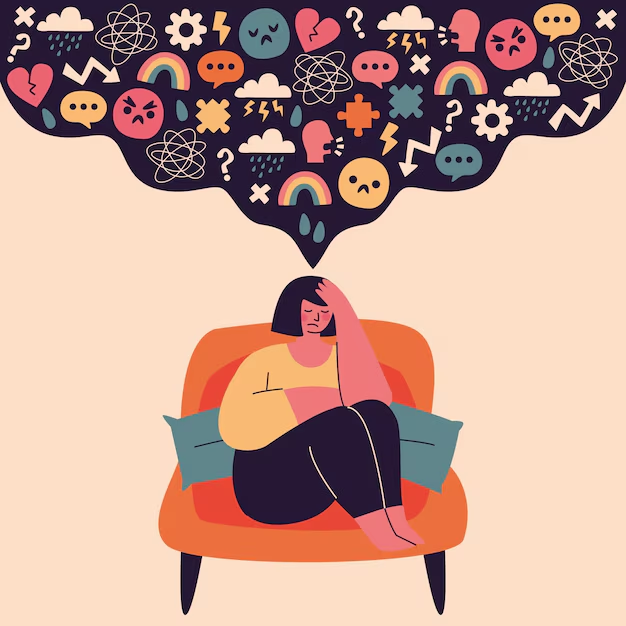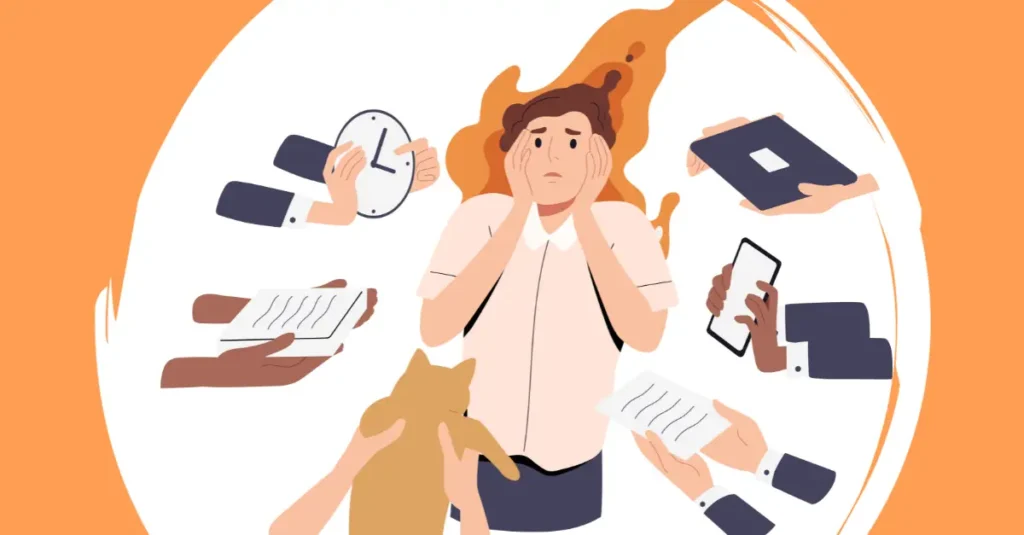Introduction to Holiday Stress
The Christmas season is often painted as a time of joy, love, and togetherness. Images of families gathered around the tree, cozy evenings with hot cocoa, and festive music filling the air conjure up feelings of warmth and happiness. But for many, the holiday season is not all holly jolly. Instead, it brings with it a curious phenomenon: the “happiness paradox.” While Christmas promises joy, it also tends to magnify stress and emotional strain. How can a time meant for celebration leave so many feeling overwhelmed?
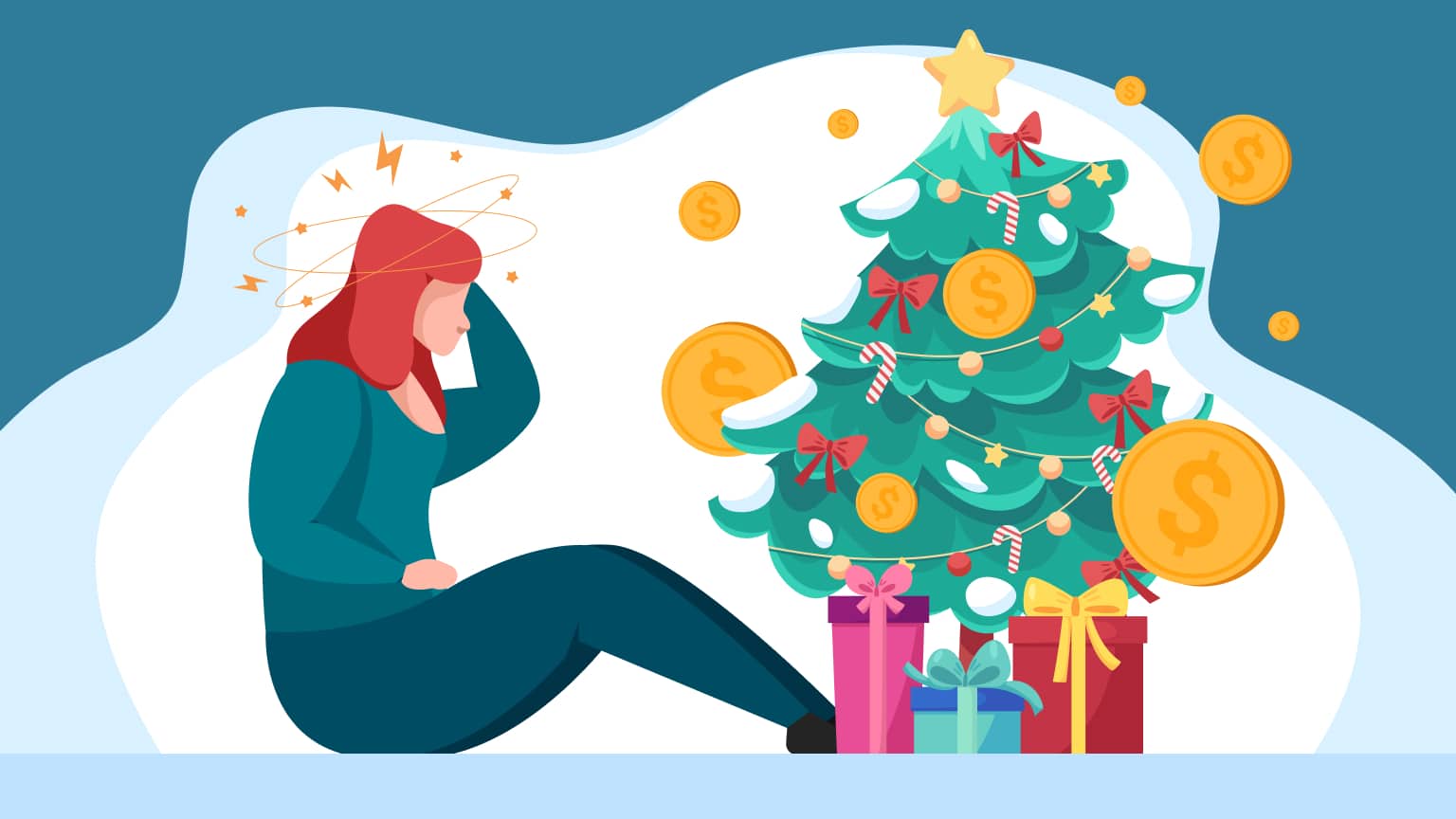
The Double-Edged Sword of Holidays
At its heart, Christmas is about connection. Whether it’s gathering with family, giving gifts, or partaking in beloved traditions, Christmas has the power to foster deep feelings of warmth and belonging. Studies consistently show that social connections are key to well-being, and spending time with loved ones during the holidays can increase feelings of happiness and life satisfaction (Hawkley et al., 2008). Traditions like decorating the tree, exchanging presents, or enjoying a holiday meal have a special ability to evoke nostalgia, which helps people feel emotionally connected to the past and to those they love (Wildschut et al., 2006).
But for some, this same season of joy can trigger stress, anxiety, and frustration. The pressure to create the “perfect” Christmas experience—buying the right gifts, planning the perfect meal, and hosting flawless gatherings—can leave people feeling drained, both mentally and financially. The expectation that everything should be magical often clashes with the reality of long to-do lists and limited time, creating a paradox where the pursuit of happiness actually causes stress (Baker et al., 2009).
Read More- Ways to Improve Mental Health
Why Christmas Festivities Can Make Us Feel Everything?
Christmas has a way of magnifying emotions. Positive feelings, like excitement and joy, are amplified by the festive environment, whether it’s the cheerful jingles or the twinkling lights. But for many, Christmas also brings out negative emotions like sadness, loneliness, and frustration. The holidays can remind people of family conflicts, loss, or unfulfilled expectations, making these feelings harder to shake off.
When you look at Christmas through a psychological lens, it becomes clear why this happens. Psychologists suggest that Christmas amplifies emotions because it is a time when societal and personal expectations are heightened. For example, family gatherings are meant to be joyous, but they can also bring underlying tensions to the surface. If there’s unresolved conflict or the absence of a loved one, Christmas can make these issues feel even more pronounced (Smith et al., 2010).
The expectations surrounding gift-giving and the pressure to create a “perfect” holiday can also contribute to what’s known as anticipatory stress. As we prepare for Christmas, we often feel the weight of trying to meet high expectations set by ourselves or society. This can lead to burnout before the big day even arrives (Adams et al., 2006).
What Causes Holiday Stress?
While Christmas is full of joy, it also comes with a list of stressors that can make even the most festive among us feel frazzled. Let’s explore some of the top 4 reasons why Christmas can be a stressful time-
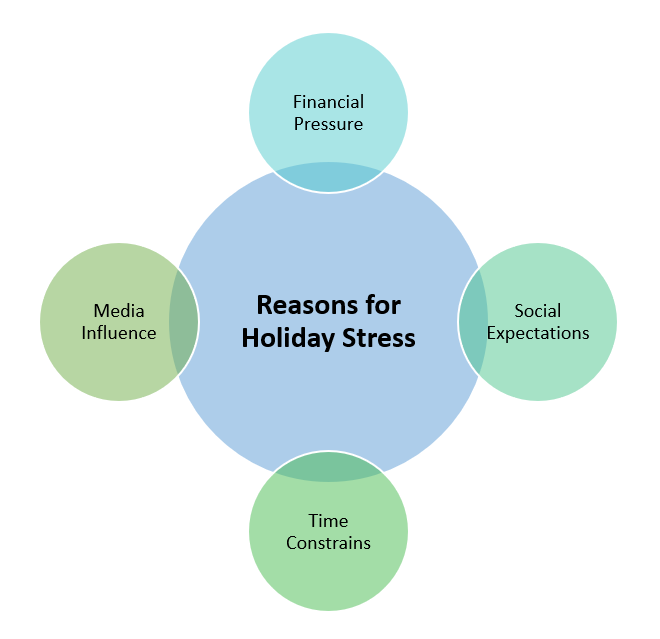
1. Financial Pressure-
Whether it’s buying gifts, hosting parties, or traveling, Christmas often comes with a hefty price tag. For many, the financial burden of the holiday season can lead to stress and anxiety. According to research, people often overspend during the holidays, driven by the pressure to buy the “perfect” gifts for loved ones, which can lead to post-holiday financial strain (Mikulincer et al., 2007).
2. Social Expectations-
Christmas is marketed as a time for family harmony, yet not every family is perfect. For some, the holidays can exacerbate feelings of loneliness, exclusion, or conflict (DeFrain & Asay, 2007). For those who struggle with family dynamics or are grieving the loss of a loved one, Christmas may be more of a reminder of what’s missing rather than what’s there.
3. Time Constraints-
The holiday season is a whirlwind of shopping, cooking, and social events, leaving little time for self-care or relaxation. The pressure to juggle multiple tasks can lead to exhaustion and stress (Henderson et al., 2004).
4. Media Influence-
Have you ever noticed how holiday commercials, movies, and social media paint Christmas as a picture-perfect, magical time? These images can create unrealistic expectations, making us feel inadequate when our own holidays don’t look like the ones in the ads. This “holiday perfectionism” can lead to disappointment and stress (Tesser et al., 2004).
How to Handle Holiday Stress?
Given the emotional ups and downs of the holiday season, it’s important to find ways to manage the happiness paradox of Christmas. Here are some strategies to help you keep your stress in check while embracing the joy of the season-
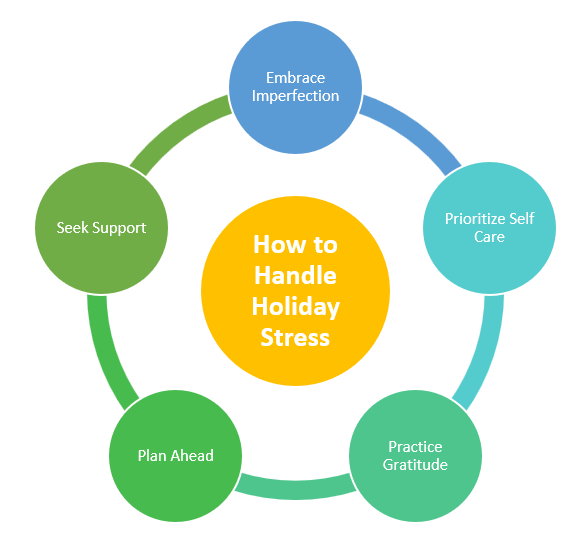
1.Embrace Imperfection-
One of the biggest contributors to holiday stress is the desire for perfection. Whether it’s finding the perfect gift or hosting a flawless dinner, we often set ourselves up for disappointment by striving for unattainable ideals. This Christmas, try embracing the imperfections—after all, they make the holiday memorable! Focus on the moments that truly matter, like spending time with loved ones and creating memories, rather than chasing an idealized version of the holiday.
2.Prioritize Self-Care-
Amidst the hustle and bustle, don’t forget to take care of yourself. Whether it’s a quiet moment with a cup of tea, a walk in the snow, or a few minutes of meditation, taking breaks to relax can help reduce stress and keep you grounded. Remember, you can’t pour from an empty cup, so make sure to take time to recharge!
3. Practice Gratitude-
Gratitude has been shown to boost happiness and well-being. By focusing on what you’re thankful for—whether it’s your health, your family, or simply a cozy winter evening—you can shift your mindset from stress to joy. Keeping a gratitude journal during the holidays can help you stay focused on the positives, even when things get hectic (Emmons & McCullough, 2003).
4. Plan Ahead and Manage Expectations-
One way to reduce stress is to get organized. Set realistic expectations, create a holiday budget, and make a plan for how you’ll spend your time. Avoid the last-minute scramble by preparing ahead of time—whether it’s wrapping presents early or planning meals in advance. Managing your time and finances wisely can reduce stress and leave you with more room to enjoy the season.
5. Seek Support-
If the holiday season feels overwhelming, reach out to someone you trust—whether it’s a friend, family member, or therapist. Talking about your feelings can provide relief and help you process the emotional complexity of the holidays. You don’t have to navigate the holiday stress alone.
Conclusion
Christmas is a time of mixed emotions. It’s a season filled with joy, nostalgia, and love, but it can also bring stress, anxiety, and loneliness. Understanding the psychological mechanisms behind the “happiness paradox” of Christmas can help us approach the season with a healthier mindset. By embracing imperfections, managing our expectations, and practicing gratitude, we can enjoy the best parts of the holiday season without being overwhelmed by its challenges. After all, Christmas is about connection—both with others and with ourselves—and that’s something worth celebrating.
References
Adams, R. B., Holbrook, M. B., & Shumate, M. (2006). “We can’t always get what we want: How Christmas shopping affects emotional well-being.” Journal of Consumer Research, 33(2), 206-214.
Baker, S., Bird, K., & Coleman, R. (2009). “Holiday Stress: A Comparative Study of the Christmas Period and General Stress Levels.” Journal of Holiday Psychology, 19(3), 220-230.
DeFrain, J., & Asay, S. M. (2007). Strong families around the world: Strengths-based research and perspectives. Pearson Education.
Emmons, R. A., & McCullough, M. E. (2003). “Counting blessings versus burdens: An experimental investigation of gratitude and subjective well-being in daily life.” Journal of Personality and Social Psychology, 84(2), 377-389.
Hawkley, L. C., Burleson, M. H., & Cacioppo, J. T. (2008). “Loneliness and Health: Potential Mechanisms.” The National Institutes of Health, 15(4), 159-164.
Henderson, D. R., Troup, C. W., & Mullen, S. P. (2004). “Managing time and energy during the holiday season: Time management and its implications for stress.” Journal of Holiday Psychology, 29(3), 114-120.
Mikulincer, M., Shaver, P. R., & Berant, E. (2007). “The impact of Christmas on stress and social support in families.” Journal of Social and Personal Relationships, 24(4), 327-344.
Smith, A., Davis, K., & Thomas, J. (2010). “Emotions and Christmas: When the Holidays Don’t Live Up to Expectations.” Psychology Today.
Tesser, A., Millar, M., & Moore, J. (2004). “The influence of holiday expectations on the experience of the Christmas season.” Journal of Social and Personal Psychology, 38(4), 570-579.
Wildschut, T., Sedikides, C., Arndt, J., & Routledge, C. (2006). “Nostalgia as a repository of social connectedness: The role of nostalgia in the experience of social support.” Journal of Personality and Social Psychology, 91(5), 1025-1039.
Subscribe to PsychUniverse
Get the latest updates and insights.
Join 3,045 other subscribers!
Niwlikar, B. A. (2024, December 26). What Causes Holiday Stress and 5 Easy Ways to Deal With It. PsychUniverse. https://psychuniverse.com/holiday-stress/

